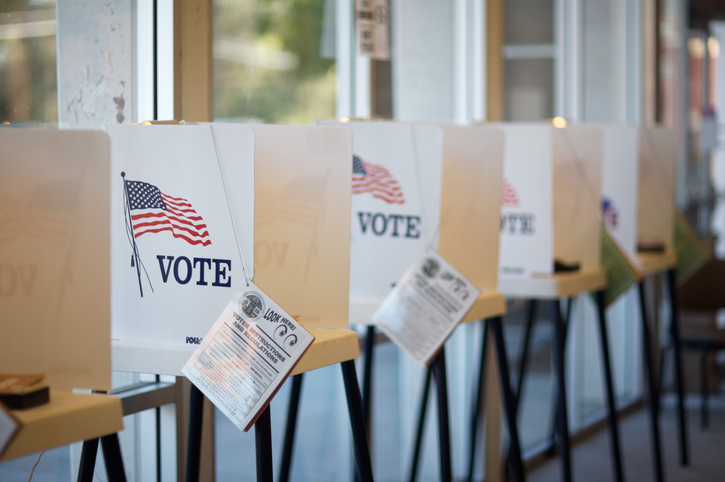November 5, 2018
Democracy on the Ground Floor: Law Schools Lend a Hand on Election Day
Associate Dean for Research and Professor of Law, Loyola Law School, Los Angeles
inbrief

There is no better view of the trenches of democracy than the polling place.
Most of the time, these trenches are surprisingly heartwarming. Good people volunteer to serve as pollworkers, spending hour after hour helping their neighbors vote — all equal at the ballot box, regardless of background or station. It’s a wondrous act of performing Americana.
This is the norm. But it is not universal. Some voters encounter rudeness, discrimination, misinformation, or even violence. Some confront lengthy lines, linguistic barriers, or regulatory roadblocks. Some are stymied by willful obstruction; some are stymied by mistake. Some are sent away; some are sent away unlawfully. The law on the books is not always the law on the ground — and the decisions a pollworker makes are exceedingly difficult to undo.
Voters’ experiences at the polls have systemic impact. Pollworkers are the stewards of democracy on the front lines of every fair result. And studies show that when voters feel good about their interactions with pollworkers, they feel more confident about the electoral system. A helpful pollworker can turn occasional voters into every-time voters.
We have worked within, and helped to run, multiple national efforts ensuring that eligible voters could vote and have those votes counted. We recognize just how important pollworkers can be.
And we also know that it can be hard to find good ones. They face long hours of hard work for a rather humble stipend. Many officials struggle to recruit and train enough people to take on the job.
So we thought law schools should lend a hand. And we thought we’d start with Los Angeles, the largest election jurisdiction in the country, with some of the most profound need.
This year, Loyola Law School, Los Angeles, has canceled classes on election day, freeing its students to serve as pollworkers, placed and trained in partnership with the county. For the students, it’s a rare opportunity to become government officials for a day, getting meaningful experience in applying a multilayered regulatory scheme to real people on the ground.
For the community, it’s an even bigger win. Loyola is built on a social justice mission that the students take seriously; their legal training, problem-solving ability, and technological savvy make them ideal candidates to staff the polls. Loyola students are as diverse as the county they serve, with 17 different languages among the corps of volunteers. They will be fanning out across the jurisdiction, to the polling locations where county officials have historically had the most difficulty recruiting.
Loyola’s efforts build on those at Northwestern Law two years ago. And with the help of organizations like the American Constitution Society and the Leadership Conference Education Fund, we hope that a successful pilot this year helps to take the program national for 2020.
Universities across the country can lend a tangible hand to the election process by creating opportunities for their students to serve as pollworkers. And at the same time, they’ll be providing their students with an unparalleled educational opportunity. There is no better way to see what democracy looks like.
Justin Levitt is a law professor at Loyola Law School, Los Angeles; Molly Greene is a Loyola alumna. They have both helped to run nonpartisan operations to protect the voting rights of eligible citizens and promote a fair and efficient election process.




